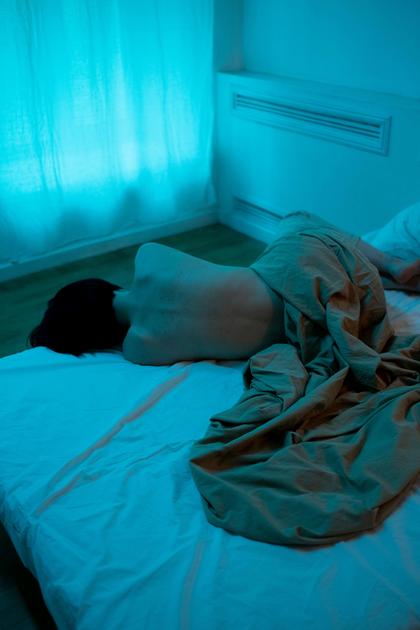Many women experience hair loss after menopause, which can be distressing and impact self-esteem. This hair thinning often relates to hormonal changes that occur during this life stage. Understanding how to address these changes can empower you to regain confidence and manage symptoms effectively. In this post, we’ll explore the various treatments and lifestyle changes that can help you combat this issue.
The Calm Reset — 7 Days to Feel Steady, Kind & In Control Again - Only $2.99
Gentle guidance trusted by our community.
Understanding Hair Loss After Menopause
Hair loss is a common concern for many women after they go through menopause. Hormonal changes during this time can lead to thinning hair and, for some, significant hair loss. Understanding the reasons behind this phenomenon can help in addressing it.
During menopause, the body experiences a decrease in estrogen and progesterone levels. These hormones are crucial for maintaining healthy hair growth. As they decline, hair follicles can shrink, leading to thinner hair strands and increased shedding.
The Role of Hormones in Hair Thinning
The relationship between hormones and hair loss is complex. Estrogen, in particular, plays a significant role in hair health. It helps to prolong the hair growth cycle. With lower estrogen levels during menopause, the hair growth phase shortens, and the hair may not grow back as quickly or as thickly as before.
Testosterone, another hormone, may also rise relatively and can lead to increased hair thinning. This hormonal imbalance is a common cause of hair loss in menopausal women.
Natural Remedies for Hair Loss
Many women seek natural remedies to combat hair loss. These can include:
- Essential Oils: Oils such as rosemary and lavender have been found to promote hair growth. Massaging these oils into the scalp may stimulate blood flow and encourage hair growth.
- Aloe Vera: Known for its soothing properties, aloe vera can help alleviate scalp irritation and keep hair moisturized.
- Herbal Supplements: Supplements like saw palmetto and ginseng can enhance hair health and potentially reduce hair loss.
Trying these natural remedies can be a gentle way to address thinning hair without harsh chemicals.
Dietary Changes to Support Hair Health
What you eat can significantly impact your hair health. A balanced diet rich in vitamins and minerals is essential. Focus on these nutrients:
- Biotin: This B-vitamin is vital for hair growth. Foods high in biotin include eggs, nuts, and whole grains.
- Iron: Lack of iron can lead to hair loss. Include iron-rich foods like leafy greens, beans, and lean meats in your diet.
- Omega-3 Fatty Acids: Found in fish like salmon and chia seeds, these acids can nourish hair and support its growth.
A well-rounded diet can be a powerful ally in maintaining healthy hair.
Hair Care Tips for Thinning Hair
Adjusting your hair care routine is essential when facing thinning hair. Here are some useful tips:
- Gentle Shampooing: Use a mild shampoo to avoid stripping hair of its natural oils. Try to wash your hair less frequently.
- Avoid Heat Styling: Reduce the use of heat tools like curling irons and straighteners, which can further damage weak hair.
- Thickening Products: Consider using volumizing shampoos and conditioners that add body to thin strands.
These small adjustments can significantly improve the condition of your hair.
The Benefits of Scalp Massage
Scalp massage isn’t just a relaxing experience; it can enhance hair health, too. Massaging the scalp increases blood circulation, which can promote hair growth and thickness. Taking a few minutes each day to gently massage your scalp can be a beneficial and soothing practice.
Consulting a Dermatologist
When hair loss becomes a concerning issue, consulting a dermatologist can be helpful. They can determine any underlying conditions causing hair loss and suggest suitable treatments or therapies. Professional advice can streamline your efforts in managing hair thinning effectively.
Exploring Hair Restoration Options
If natural remedies and lifestyle changes don’t yield the desired results, consider exploring hair restoration options. Treatments like minoxidil or laser therapy can stimulate hair growth. Discussing these options with a healthcare provider is vital to find the best fit for you.
Embracing Your New Look
Transitioning through hair loss can be challenging, but it’s essential to embrace your beauty at every stage. Finding styles that work well with thinning hair can instill confidence. Shorter haircuts often create a fuller appearance, and experimenting with different hairstyles can lead to a new, fabulous look.
Motivational Stories from Other Women
Many women have faced hair loss during menopause and have found ways to cope, adapt, and thrive. Their stories serve as motivation for those currently struggling. Joining support groups or online communities can provide encouragement and valuable tips from women who understand the journey.
It’s important to remember that hair loss is just one part of your life’s story. Embracing the change with positive energy can lead to new experiences and personal growth.
Discover how many women are addressing their menopause challenges without heavy medications, here: see here
The journey through menopause and hair loss can seem daunting, but there are solutions and support available. Finding the right path for yourself is possible, as many women have done before you. Remember, you’re not alone in this journey.
The Calm Reset — 7 Days to Feel Steady, Kind & In Control Again - Only $2.99
Gentle guidance trusted by our community.







